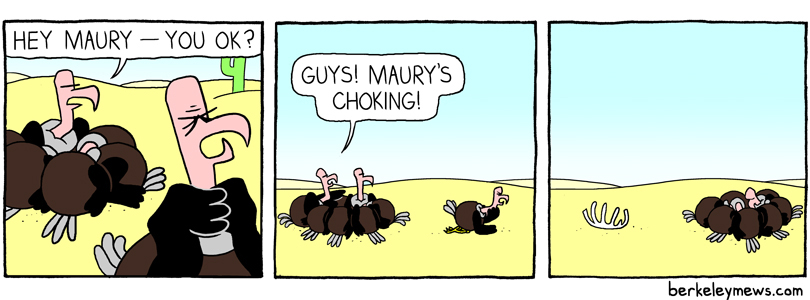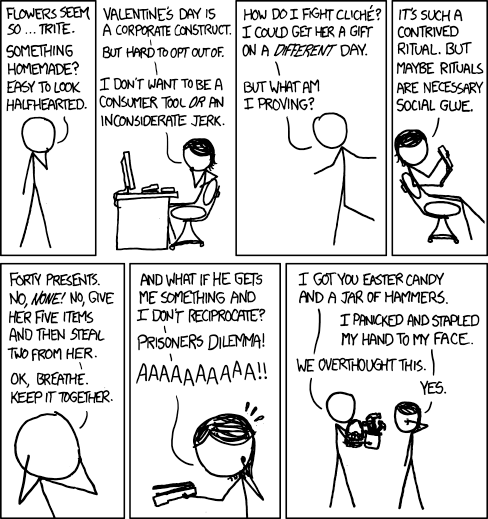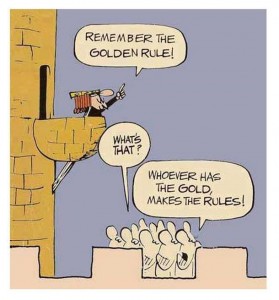Sock Hops Essential for Societal Growth
By: Jon KaplanThe year is 1952 and you’re a 15 year old girl named Lucy. You find yourself in high school, where everything is in black and white because that’s just how things looked in the past, and you notice a rambunctious crowd beginning to gather in the courtyard.
To your surprise, you learn that your beloved classmate Maury is choking on one of his grandma’s delicious sugar-free cookies (sugar was a rare commodity at the time, but that’s not important right now).
 Kids can really be vultures sometimes… Kids can really be vultures sometimes… |
No one in the crowd knows what to do until Richard appears at the scene! He starts vigorously hitting Maury on the back because, of course, the Heimlich maneuver hadn’t been invented yet.
Woosh! The crowd lets out a collective sigh of relief as the moist chunk of half-dissolved cookie comes whizzing by your face. Afterwards, you think highly of the new hero Richard, and when he asks you to the school’s annual sock hop dance, you are more than willing to oblige.
These events can be characterized as a (rather odd) example of an important social interaction known as “indirect reciprocity.” Despite sounding complicated, this just refers to a situation in which one person helps another, receiving a reputation boost in the process, making him more likely to receive help from others later.
Indirect reciprocity played a large part in the development of human trust and cooperation, and it may be a significant reason we’re all here today. It’s certainly a reason you should be excited for your upcoming dance with Richard!
A recent study explored indirect reciprocity by looking at three different “games” (Stag Hunt, Prisoner’s Dilemma, and Snowdrift Dilemma), or social situations with certain rules.
 Social norms sure can be daunting… Social norms sure can be daunting… |
In each game, two people would have to decide whether to cooperate with one another or defect for potential personal gain, using only their opponent’s reputation to influence the decision. Afterwards, the players would receive a new reputation based on their decisions and their partner’s previous reputation. For example, going to the sock hop with Richard is classified as cooperating with someone who has high reputation, and would subsequently raise your reputation.
Have you ever wondered why society looks down upon those who hang out with “low-lifes?” Well, it turns out that one way to mathematically ensure a healthy and cooperative society blossoms is to punish those who cooperate with low-reputation players.
That’s not the only way though—cooperation is also apparently more prevalent in societies where people reciprocate actions (e.g. cooperating with someone who previously cooperated). This helps explain how our morals developed and how civilization was able to remain successful and thrive for so long. No wonder we’re taught as kids to always follow “The Golden Rule!”
 Treat others the way you want to be treated. Or get rich, I’m not sure anymore… Treat others the way you want to be treated. Or get rich, I’m not sure anymore… |
It looks as though going to the sock hop with Richard is a spectacular decision of the kind that can help a society grow. So, you enjoy that dance, and remember to be back by 10!
Works Cited
Mitsuhiro Nakamura, Hisashi Ohtsuki, Indirect reciprocity in three types of social dilemmas, Journal of Theoretical Biology, Volume 355, 21 August 2014, Pages 117-127, ISSN 0022-5193, http://dx.doi.org/10.1016/j.jtbi.2014.03.035.